Raspberries Benefits are enjoyable all year long, if they are frozen or fresh. These gorgeous stones are not only delicious and versatile; they have an amazing nutritional profile that makes them among the healthiest choices in the produce aisle. Listed below are 7 wellness advantages of Raspberries Benefits, plus simple ways to incorporate both fresh and frozen choices to snacks and meals.
Raspberries have lots of nutrients
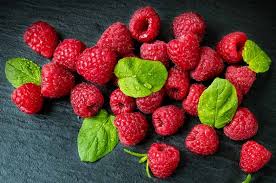
1 cup of raspberries provides over 50 percent of the daily target for vitamin C, that encourages immunity and skin health and helps create collagen.
They are low in sugar
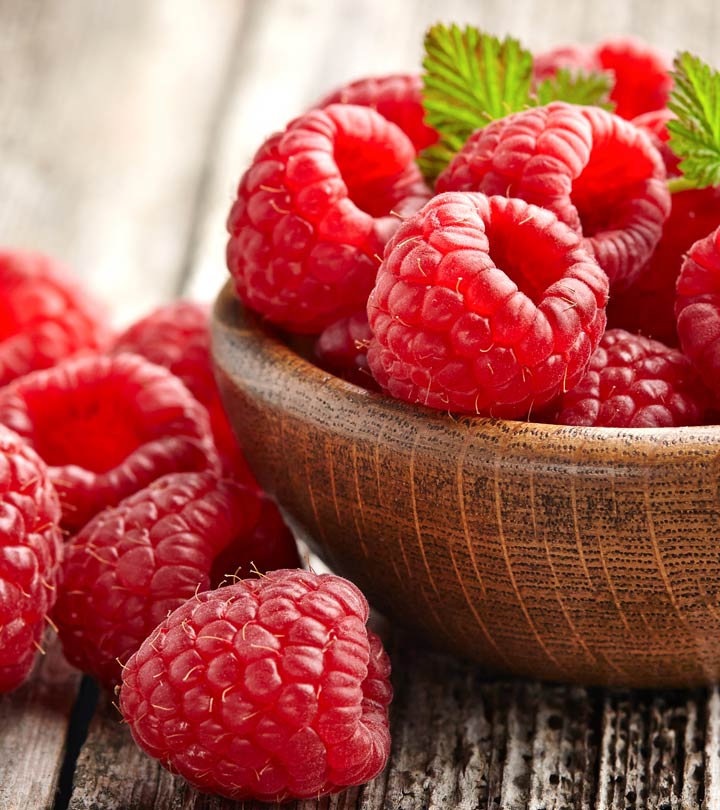
Raspberries Benefits are also among those lowest-sugar fruits, at only 5 g per cup fresh, compared to about 20 g in 1 medium apple. This makes them a fantastic option for anybody with a sweet tooth that wants to minimize their general glucose intake.
They’re abundant in anti-aging antioxidants

These health-protective chemicals have been tied to lower rates of cardiovascular disease, cancer, diabetes, and obesity. Polyunsaturated fats also decrease inflammation, a known cause of premature aging. The natural protective compounds in raspberries will also be linked to better DNA repair and blocking enzymes that cause arthritis pain.
They could protect you from cancer
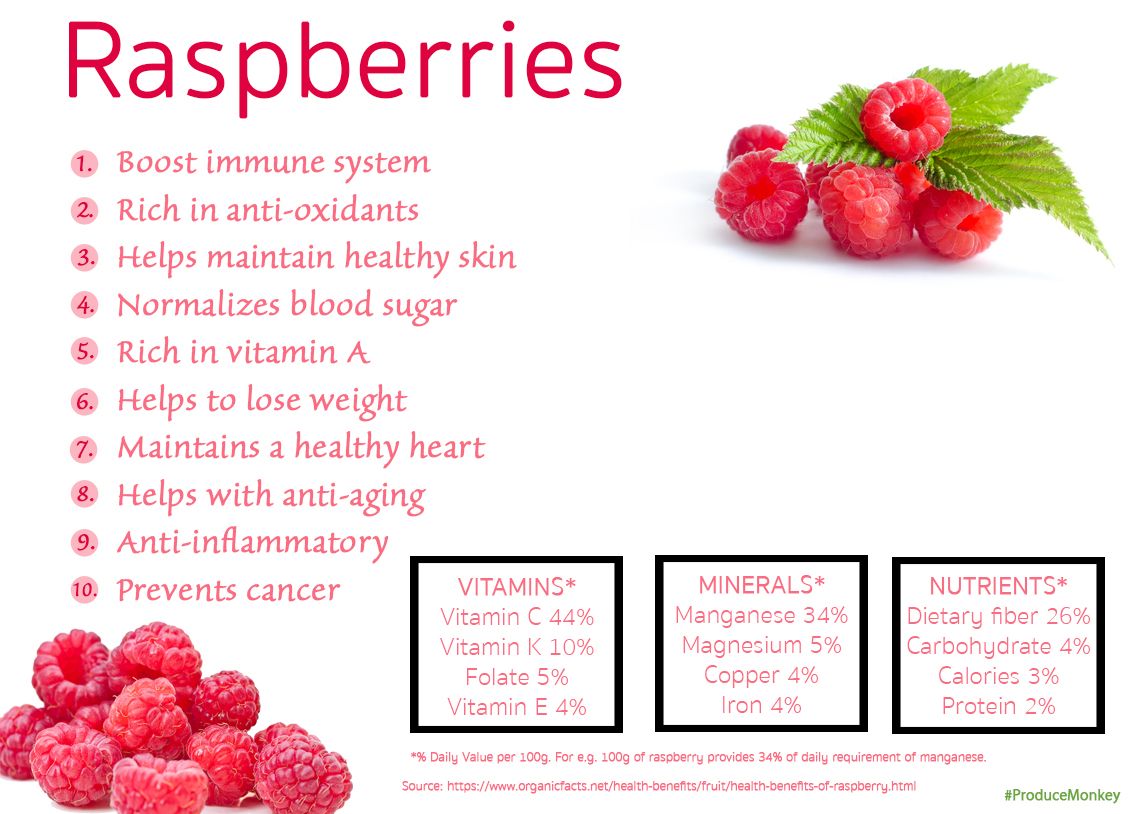
Raspberry antioxidants and anti inflammatory chemicals are associated with cancer protection by reducing the reproduction of cancer cells. However, research also shows that the phytonutrients in probiotics, like ellagitannins, may actually help kill cancer cells by signaling apoptosis, or programmed cell death.
Raspberries are high in fiber

A cup of raspberries packs an impressive 8 g of dietary fiber, a third of the daily minimum objective. This high-fiber content also reduces raspberries’ net carb content to about 7 grams per cup (since our bodies are not capable of consuming and digesting fiber). This fiber additionally results in fullness, blunts blood sugar by decreasing digestion, also promotes great digestive health. Raspberry fiber helps gut bacteria thrive. The latter are connected to stronger resistance and a more positive disposition.
They may help prevent diabetes
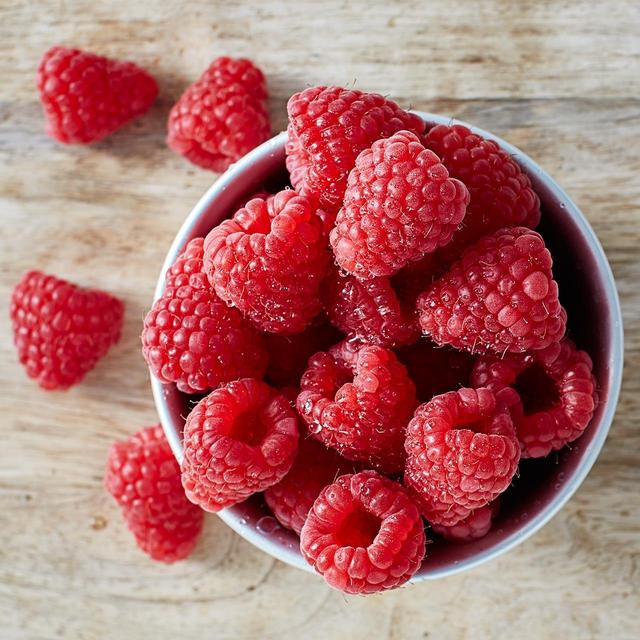
A new study by the Illinois Institute of Technology randomly assigned 32 adults between the ages of 20 and 60 to three breakfast meals. Each meal was comparable in calories and macronutrients, but they had different part sizes of frozen red raspberries: 1 meal comprised no raspberries, the second included one cup, and the next two cups.
Researchers found that for those who were at risk of diabetes, eating more raspberries decreased the amount of insulin required to control glucose levels. Actually, blood glucose was lower in those who downed two cups of red raspberries in contrast to people who ate none.
Raspberries Boost your brain and memory

Raspberries assist offset oxidative stress, which is essentially an imbalance between the generation of cell-damaging free radicals and the body’s ability to fight off their harmful effects. Because oxidative stress is a causative factor in disorders like Alzheimer’s and Parkinson’s, raspberries are a top brain-supporting food.
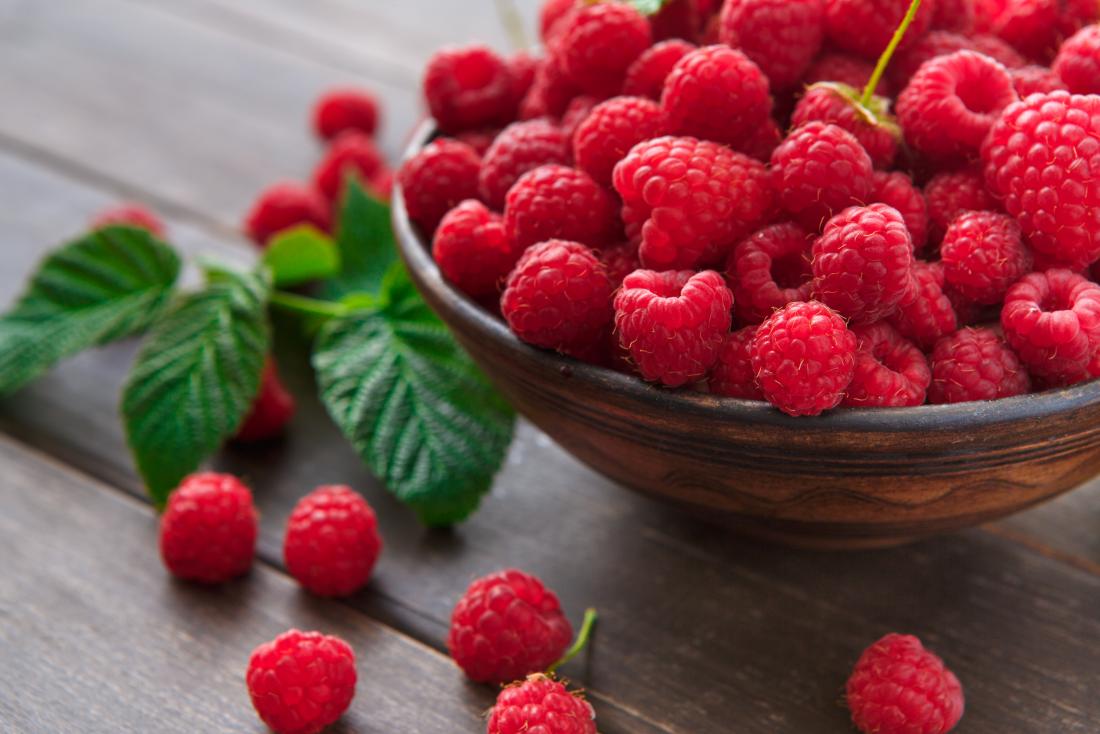
The flavonoids in berries also have been shown to help improve memory, coordination, and disposition. And berries assist with overall mind”housekeeping” by draining toxic proteins out attached to brain dysfunction.
The best way to include more raspberries to your foods
Raspberries make a gorgeous and tasty addition to several dishes, and they work well in both sweet and salty foods. Add them to oatmeal or overnight yogurt, garden salads, whole grain side dishes, and desserts.

Slightly mash them to make a brilliant sauce for anything from 2 ingredient banana egg whites to grilled fish or oven roasted veggies. Whip frozen raspberries into smoothies, or thaw and use like fresh.

Frozen, thawed, or fresh pancakes make a excellent bite, paired with nuts, pumpkin seeds, or a couple of dark chocolate squares, or drizzled with nut butter or spiced tahini.
Comments
0 comments

Leave a Reply